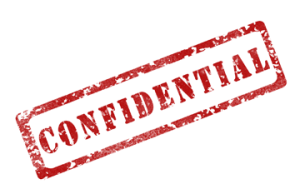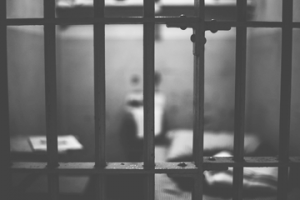To Lie or Not to Lie, That is the Question
 So you’re cruising along, writing your life story and suddenly, you run head-first into an ethical dilemma. If you tell your story the way you intended, someone’s going to be hurt. Maybe you’re the victim of a crime or even a participant in a crime. Maybe a friend or family member has skeletons they’d really prefer to be left in the closet. If you tell the full story, someone may be imprisoned, revealed, or merely embarrassed. What do you do? Do you lie, prevaricate? Or do you tell the truth, the whole truth and nothing but the truth? When is it acceptable to lie, and when is it not?
So you’re cruising along, writing your life story and suddenly, you run head-first into an ethical dilemma. If you tell your story the way you intended, someone’s going to be hurt. Maybe you’re the victim of a crime or even a participant in a crime. Maybe a friend or family member has skeletons they’d really prefer to be left in the closet. If you tell the full story, someone may be imprisoned, revealed, or merely embarrassed. What do you do? Do you lie, prevaricate? Or do you tell the truth, the whole truth and nothing but the truth? When is it acceptable to lie, and when is it not?
Lie or tell the truth? How do you decide?
The answer depends on so many factors – the participants, the events, the severity of the results, the length of time since the events took place (the statute of limitations), and even the final outcome of your story or memoir. Something that will be published and shared with the public might be considerably less damaging than personal revelations shared within the family. Alternatively, a personal notebook could have devastating consequences if delivered into the wrong hands. Which circumstances can justify revealing long-held secrets?

Oh sure, you could just go ahead and tell your story with brutal honesty and damn the torpedoes, not caring if someone else’s life falls apart. Or you could dance around the subject and imply dark deeds, without being specific.
You could even change the names to protect the innocent, (or the guilty, for that matter) or change times, dates and physical descriptions.
Yeah, but…
You’re taking a chance, though, that you might lose the power and the impact of your narrative. You need to ask yourself, at what point do the needs of the story take precedence over the needs of the people involved? How important are those people to you?
At some point, the question must be answered, and that answer is largely determined by your personal integrity. A whistleblower must reveal dirty little secrets in order to be able to live with himself. His sense of right and wrong demands that he turn over the rock and expose the secrets that he finds personally repugnant. A mother whose child has committed some heinous crime will do everything in her power to keep that secret.
As a writer, a documentarian, a memoirist, it’s your job to decide how much to reveal and how much to keep secret — maybe even waiting until all the participants are dead! You must consider the fallout.
Why write it?
Ask yourself why you want to write this particular story – what are your motivations and rationalizations. The reasons you want to write it will give you some solid clues as to whether it should be included. If it shows your reader how it shaped your personality, your opinions and subsequent decisions, it could be a legitimate part of your memoirs. If it’s just to get back at someone, maybe best to leave it out.
Make a list of pros and cons — if you tell the whole story, who will be impacted and what are the worst-case scenarios? Ask yourself: Am I likely to be sued for slander, libel or defamation? Will someone I care for be damaged physically, legally, emotionally or financially? Use your writer’s imagination to determine all possible outcomes, good and bad — weigh the alternatives and then make a decision that you can accept, because you’ll have to live with yourself for the rest of your life.
 Pay close attention to the tension in your body. You can feel in your gut what’s right and what’s wrong. The right answer feels lighter, relaxed, with less confusion. The wrong one feels heavy, guilty, with a lurking sense of ill-fitting rationalization and self-interest.
Pay close attention to the tension in your body. You can feel in your gut what’s right and what’s wrong. The right answer feels lighter, relaxed, with less confusion. The wrong one feels heavy, guilty, with a lurking sense of ill-fitting rationalization and self-interest.
Listen to your conscience. It will tell you the answer.
Happy Writing!

.
